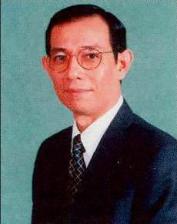EDUGLOBALFORUM2008 › Dzulkifli Abdul Razak, Vice-Chancellor, Universiti Sains Malaysia
Dzulkifli Abdul Razak, Vice-Chancellor, Universiti Sains Malaysia

Dzul became the Vice-Chancellor/President of Universiti Sains Malaysia (USM, a science-based university) in 2000, after serving as the Deputy Vice-Chancellor, apart from several academic administrative positions since joining USM in 1980. In particular, he was instrumental in setting-up, as founder-director, of the National Poisons Centre of Malaysia (1995), which now also acts as the World Health Organisation (WHO) Collaborative Centre for Drug Information (since 1998).
At the national level, he is the Chairman of the Malaysian Vice-Chancellor’s Council and the Malaysian Examination Board; the Chairman for METEOR SB, the parent organisation for Open University of Malaysia, and a board member of Selangor Islamic University College (KUIS). He is also currently a Director of National Productivity Corporation of Malaysia, a Co-Chair (Government sector) of Malaysian Industry-Government Group for High Technology (MIGHT), and recently appointed as a member of the Malaysian Biotechnology Implementation Council as well as the National Innovation Council which is chaired by the Rt Hon. Prime Minister of Malaysia.
At the international level, he is currently serving as the President of the Association of Southeast Asia Institutions of Higher Learning (ASAIHL) until 2008, also a board member of the International Association of Universities (IAU) - a UNESCO-affiliated organisation; board member of the ASEAN University Network (AUN), Association of Commonwealth Universities; and University Mobility in Asia and the Pacific (UMAP).
He is a consultant to the World Health Organisation (WHO), and since 1965 erved as a member of the WHO Expert Advisory Panel on Drug Policies and Management; and as a board member of WHO Scientific Advisory Committee on Tobacco Product Regulation (2000-2002). He has work closely with various governments in various WHO missions in the Asia-Pacific region (such as Philippines, Brunei, Papua New Guinea, Fiji, Cooks Island) and Africa (Uganda and Tanzania), before taking up the current positon.
For his efforts, he received a number of recognitions: in 1999, The Olle Hanson Award under auspicious of Consumer International for his contribution to healthcare sector in developing countries. In 2000, he was recognised as a Global Leadership Scholar by the Robert Wood Foundation, USA in conjunction with the 11th World Conference on Tobacco or Health. In 2002 he received the Rotary Research Foundation Gold Medal for Medical Sciences. In 2004 became the first recipient of The Inaugural South East Asia Tobacco Control Alliance (SEATCA) Award for his work on tobacco control. In April 2006 he was awarded the Honorary Degree of Doctor of Science (DSc. honoris causa) by the University of Portsmouth for his leadership in higher education. Recently in 2007, he was made the first recipient of the Pursuit of Excellence in Education Award the publishing industry (MarketSource).
He has also received three honorific awards which carries that title, Dato’, from three Head of States in Malaysia – the States of Selangor (DPMS in 2001), Penang (DMPN in 2003) and Perlis (DPMP in 2004) – in recognition to his contribution to the welfare and development of the society in general.
Since taking up the post he has been actively involved in higher education issues at both the national and international, including establishing a close collaboration and network with many research and higher education institutions in Cuba. He also regularly receives invitations to deliver plenary as well as keynote addresses on various issues on higher education.
Since 1995 he contributes regularly to a weekly column for a leading Malaysia daily, The New Straits Times, and has published no less than 500 articles on various topics related science, education, health and also current events, including a serial on Cuban achievements in science and technology. He has authored no less than 20 titles in his area of interest and expertise, 6 of which are single-author. His book on AIDS won a Special Prize in a Malaysia Book Fair in 1986.
He advocates a strong leadership role on sustainable development, leading to USM being designated as a Regional Centre of Expertise on Education for Sustainable Development by the United Nations University in June 2005 – one of the seven pioneering centres globally.
Related Documents

